
Locarno: The Jewel of Lake Maggiore
Nestled on the northern shores of Lake Maggiore, Locarno is a picturesque Swiss city that boasts a unique blend of Mediterranean charm and Alpine beauty. With its sunny climate and stunning landscapes, it is a haven for nature lovers, history buffs, and adventure seekers alike. Explore the charming old town, where narrow cobblestone streets wind past historic buildings, cozy cafes, and boutique shops. The Piazza Grande, the heart of the city, is famous for hosting the annual Locarno Film Festival, attracting cinephiles from around the world. For a touch of history, visit the Castello Visconteo, a medieval castle that offers a glimpse into the region's past. Nature enthusiasts will relish the opportunity to hike in the nearby valleys or take a leisurely boat ride on the serene waters of Lake Maggiore. Don't miss the stunning views from the Sanctuary of the Madonna del Sasso, perched high above the city. Whether you're relaxing by the lake, exploring the mountains, or delving into the local culture, Locarno promises an unforgettable experience.
Local tips in Locarno
- Visit during the Locarno Film Festival in August for a unique cultural experience.
- Wear comfortable shoes for exploring the old town's cobblestone streets.
- Take a boat trip on Lake Maggiore to fully appreciate the stunning scenery.
- Hike to the Sanctuary of the Madonna del Sasso for breathtaking views of the city and lake.
- Try local specialties like risotto and polenta at one of the traditional restaurants.
Locarno: The Jewel of Lake Maggiore
Nestled on the northern shores of Lake Maggiore, Locarno is a picturesque Swiss city that boasts a unique blend of Mediterranean charm and Alpine beauty. With its sunny climate and stunning landscapes, it is a haven for nature lovers, history buffs, and adventure seekers alike. Explore the charming old town, where narrow cobblestone streets wind past historic buildings, cozy cafes, and boutique shops. The Piazza Grande, the heart of the city, is famous for hosting the annual Locarno Film Festival, attracting cinephiles from around the world. For a touch of history, visit the Castello Visconteo, a medieval castle that offers a glimpse into the region's past. Nature enthusiasts will relish the opportunity to hike in the nearby valleys or take a leisurely boat ride on the serene waters of Lake Maggiore. Don't miss the stunning views from the Sanctuary of the Madonna del Sasso, perched high above the city. Whether you're relaxing by the lake, exploring the mountains, or delving into the local culture, Locarno promises an unforgettable experience.
When is the best time to go to Locarno?
Iconic landmarks you can’t miss
Piazza Grande
Explore Piazza Grande, Locarno's vibrant heart, where stunning architecture, lively events, and local flavors come together in a picturesque pedestrian zone.
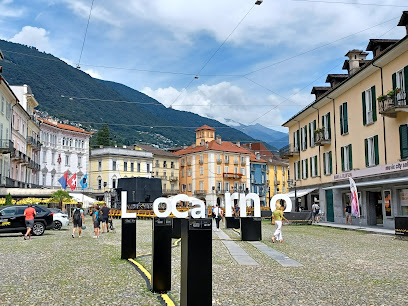
Madonna del Sasso
Experience the breathtaking beauty and spiritual serenity of Madonna del Sasso, a must-see church offering stunning views of Lake Maggiore and rich cultural history.
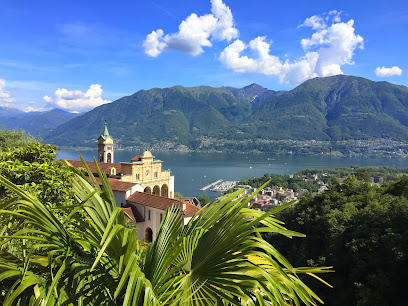
Lido Locarno - CBR Centro Balneare Regionale
Explore Lido Locarno, a stunning aquatic center by Lake Maggiore, offering pools, wellness facilities, and breathtaking views for an unforgettable experience.
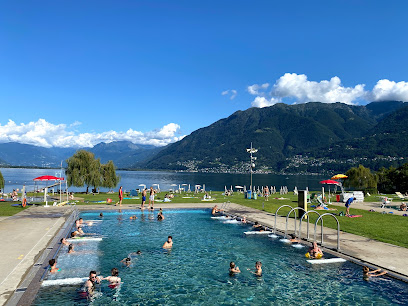
Falconeria Locarno
Discover the enchanting world of birds of prey at Falconeria Locarno, where nature and conservation come alive in a breathtaking setting.
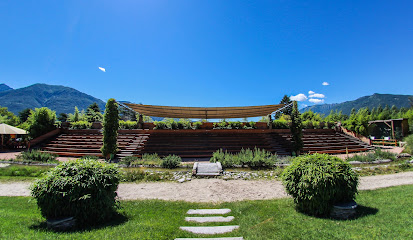
Locarno–Madonna del Sasso funicular
Experience the stunning ascent of the Locarno–Madonna del Sasso Funicular, where breathtaking views and cultural treasures await in Switzerland.
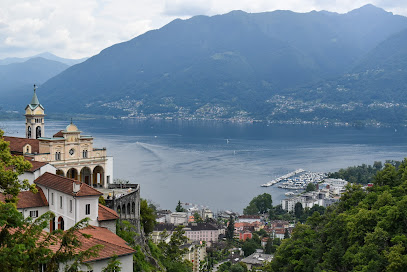
Parco giochi al Burbaglio
Explore Parco giochi al Burbaglio, a family-friendly playground in Muralto, Ticino, offering a fun-filled experience amidst breathtaking landscapes.
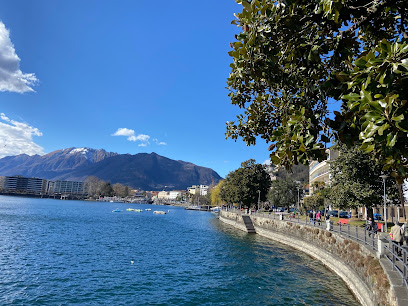
Parco delle Camelie
Explore the enchanting Parco delle Camelie in Locarno, a botanical haven with over 900 camellia varieties, perfect for nature lovers and serene strolls.
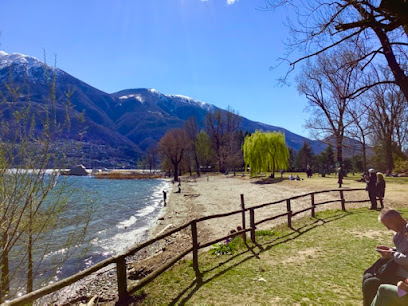
Cardada Panoramic View Point
Discover the stunning vistas of Cardada Panoramic View Point in Locarno, where breathtaking views of Lake Maggiore and the surrounding mountains await.
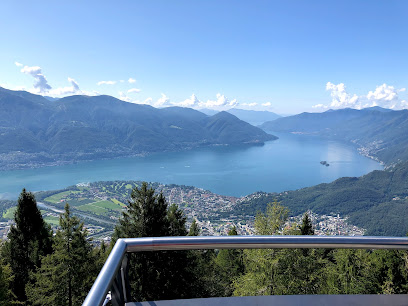
Visconteo Castle
Explore the history and beauty of Visconteo Castle in Locarno, Switzerland, where stunning architecture meets captivating archaeological treasures.
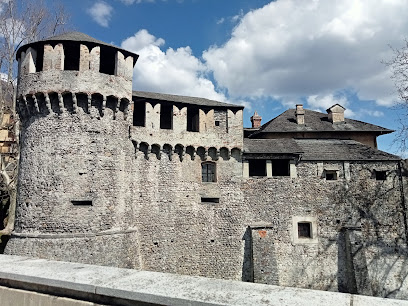
Lungolago Locarno/Muralto
Experience the serene beauty of Lungolago Locarno, a captivating lakeside promenade perfect for relaxation, scenic views, and culinary delights.
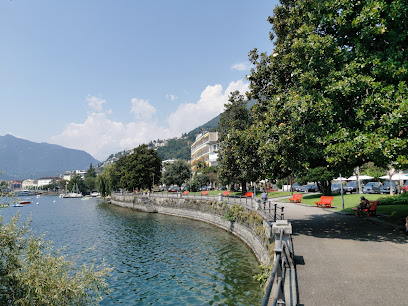
Bolle di Magadino
Discover the serene beauty of Bolle di Magadino, a nature preserve perfect for hiking, bird watching, and enjoying the tranquility of Switzerland's landscapes.
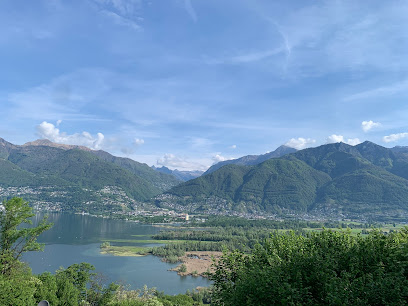
Lungolago di Locarno
Experience the serene beauty of Lungolago di Locarno, a must-visit lakeside promenade in Switzerland offering stunning views and delightful local experiences.
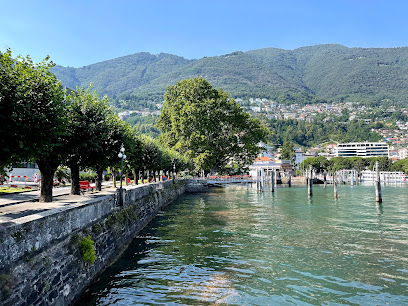
Ghisla Art Collection
Explore the vibrant world of contemporary art at the Ghisla Art Collection in Locarno, Switzerland, where imagination meets inspiration.
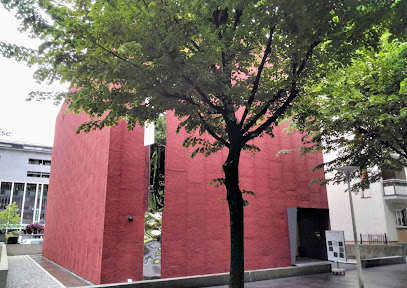
Museo Casa Rusca
Explore the vibrant collections of Museo Casa Rusca in Locarno, showcasing local and international artists in a stunning cultural setting.
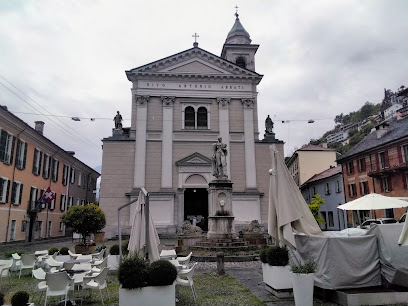
Infodesk Locarno / Ascona-Locarno Tourism
Discover the stunning beauty of Ascona-Locarno with expert guidance from Infodesk Locarno, your essential tourist information center.
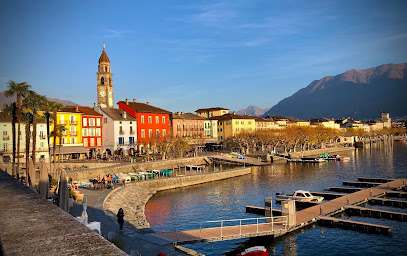
Unmissable attractions to see
Cattedrale di Santa Maria Assunta - Duomo di Como
Discover the beauty of Cattedrale di Santa Maria Assunta, a stunning Gothic cathedral in the heart of Como, rich in history and architectural wonder.
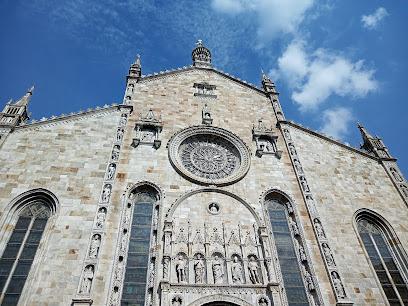
Orrido di Bellano
Experience the breathtaking beauty of Orrido di Bellano, a natural gorge with stunning waterfalls and scenic trails in the heart of Italy.
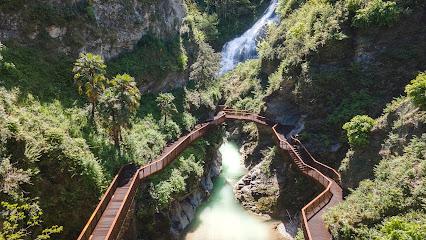
Lake Como
Discover the breathtaking beauty of Lake Como, where stunning landscapes and charming villages create the perfect escape in Northern Italy.
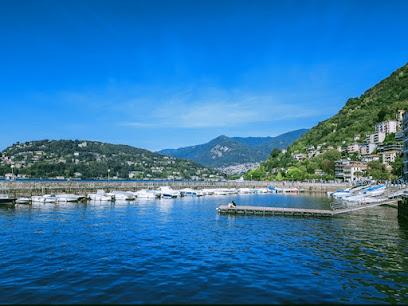
Villa Carlotta
Explore the artistic treasures and stunning gardens of Villa Carlotta, a premier destination on the shores of Lake Como, Italy.
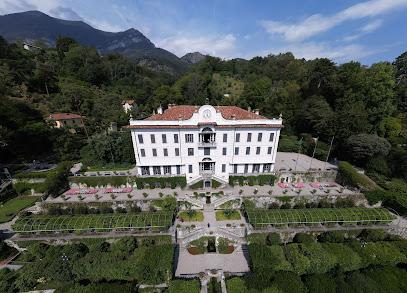
Villa del Balbianello
Experience the timeless beauty of Villa del Balbianello, a historic villa offering breathtaking views of Lake Como and rich cultural heritage.

Giardini Botanici di Villa Taranto
Experience the breathtaking beauty of Giardini Botanici di Villa Taranto, a botanical paradise featuring thousands of plant species and stunning lake views.
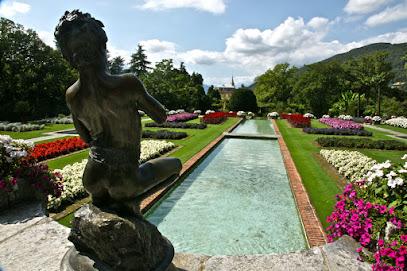
Santa Caterina del Sasso
Discover the serene beauty and spiritual heritage of Santa Caterina del Sasso, a breathtaking monastery on the shores of Lake Maggiore, Italy.
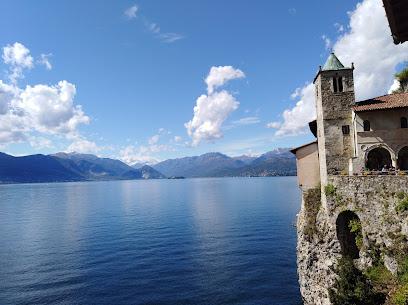
Palazzo Borromeo
Explore Palazzo Borromeo on Isola Bella, a stunning museum with breathtaking gardens and rich history, perfect for an unforgettable Italian escape.
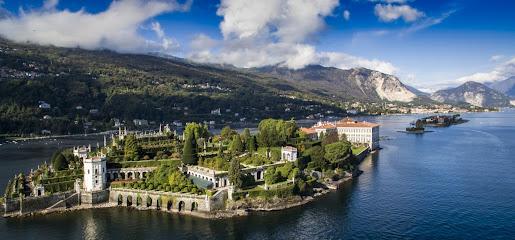
Ponte dei Salti
Discover the breathtaking Ponte dei Salti in the Verzasca Valley, an iconic Swiss bridge blending stunning architecture with nature's beauty.
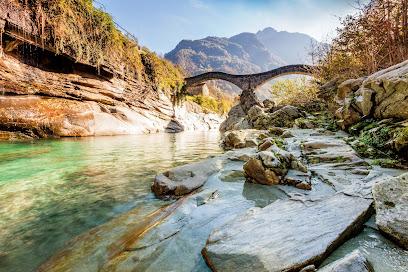
Villa Monastero
Explore the exquisite Villa Monastero, a lakeside gem featuring stunning gardens, rich history, and breathtaking views of Lake Como.
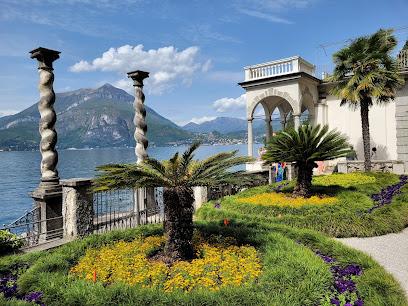
Rocca di Angera
Explore the breathtaking Rocca di Angera, a medieval castle with stunning Lake Maggiore views, rich history, and unique museum collections.
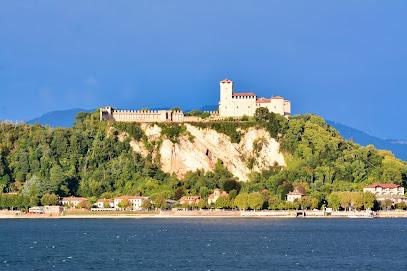
Castello di Vezio
Explore the historical wonders and breathtaking views at Castello di Vezio, a medieval gem overlooking Lake Como.
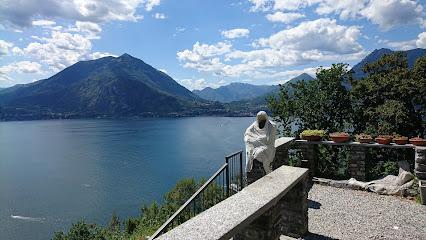
Villa Olmo
Experience the breathtaking beauty and rich history of Villa Olmo, a neoclassical gem on the shores of Lake Como, Italy.
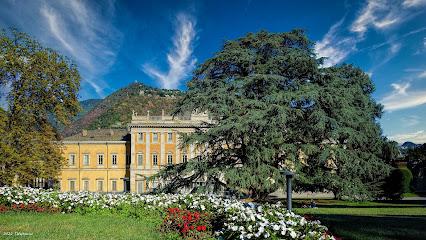
I Giardini di Villa Melzi
Explore the stunning I Giardini di Villa Melzi, a beautiful botanical garden in Bellagio, Italy, blending nature, history, and breathtaking views of Lake Como.
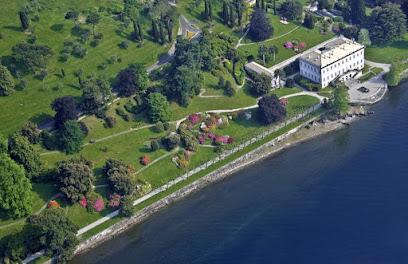
LAC Lugano Arte e Cultura
Experience the vibrant arts scene and stunning architecture of LAC Lugano Arte e Cultura, a cultural gem in the heart of Lugano, Switzerland.
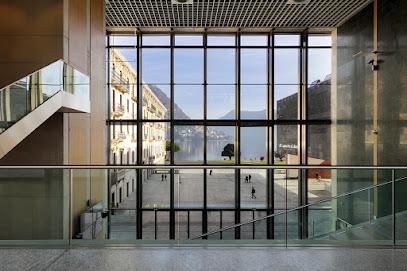
Essential places to dine
Ristorante Sensi
Experience authentic Italian cuisine with breathtaking views at Ristorante Sensi in Muralto Locarno.
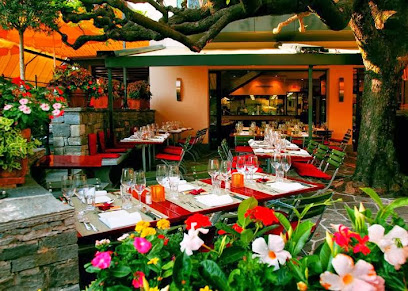
Ristorante Bar Lungolago
Discover exquisite Italian cuisine and refreshing cocktails at Ristorante Bar Lungolago, where stunning lake views meet culinary excellence.
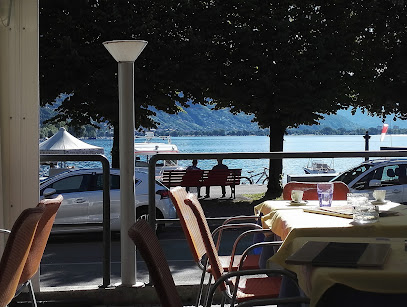
BLU Restaurant & Lounge
Experience a culinary journey at BLU Restaurant & Lounge in Locarno with Mediterranean and Japanese delights amidst an inviting atmosphere.
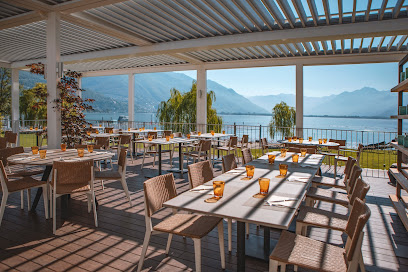
Ristorante Oldrati
Experience authentic Italian cuisine at Ristorante Oldrati in Muralto—where delicious pizzas meet stunning lakeside views.
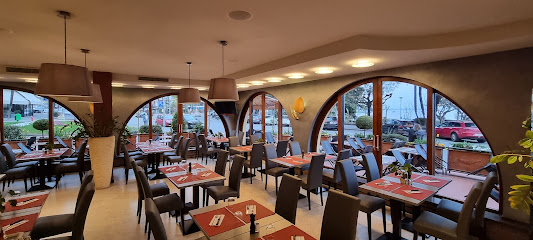
Perbacco - Ristorante Pizzeria
Experience authentic Italian cuisine at Perbacco - Ristorante Pizzeria in Locarno, where every meal is crafted with passion and tradition.
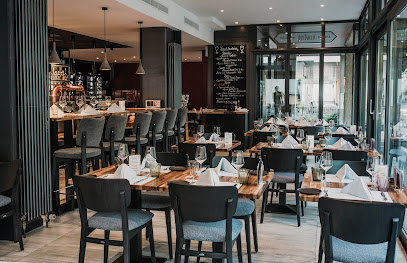
Ristorante - Pizzeria Svizzero
Savor authentic Italian cuisine at Ristorante - Pizzeria Svizzero in Locarno – where every bite transports you to Italy amidst stunning Swiss scenery.
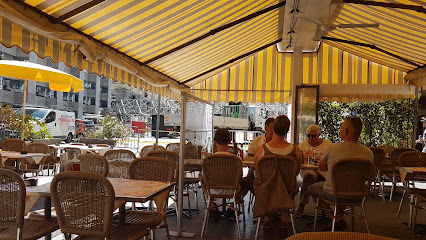
Ristorante Robinia
Experience authentic Italian cuisine at Ristorante Robinia in Locarno - where flavor meets tradition in every bite.
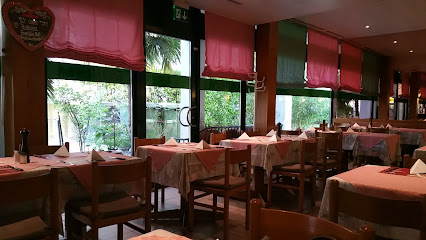
Ristorante Fiorentina
Experience authentic Italian cuisine at Ristorante Fiorentina in Locarno - where tradition meets taste in every dish.
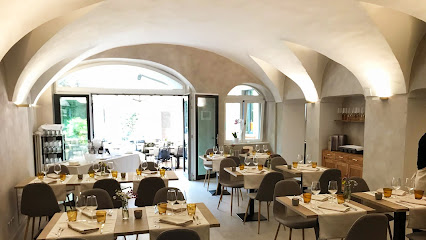
Cari ospiti dell’Osteria Chiara vi comunico che l’Osteria non verrà più aperta sotto la mia gestione.
Experience Mediterranean elegance at Osteria Chiara – where exquisite flavors meet exceptional service in the heart of Muralto.
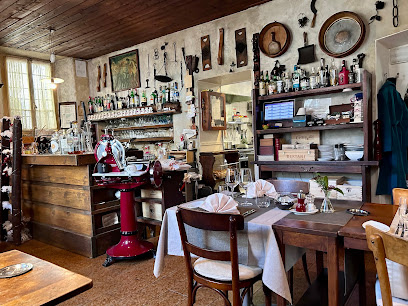
Ristorante Il Boccalino
Experience authentic Italian cuisine at Ristorante Il Boccalino in Locarno - where tradition meets flavor in every dish.
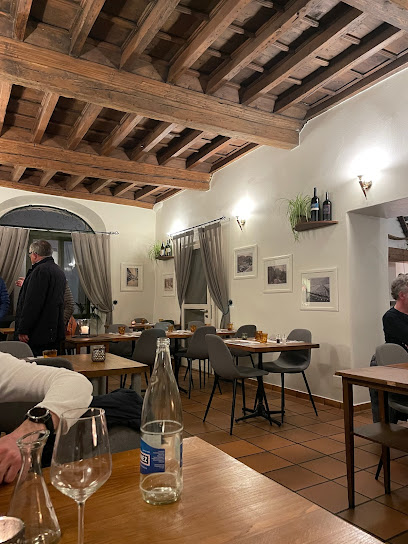
delle Valli
Discover authentic Italian pizza at Delle Valli in Locarno—where flavor meets tradition in every bite.
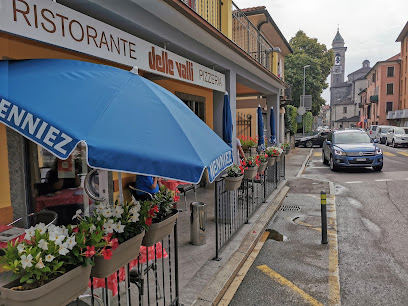
Ristorante Al Grottino
Discover Ristorante Al Grottino in Orselina – A perfect blend of exquisite Swiss-Italian cuisine with stunning lake views.
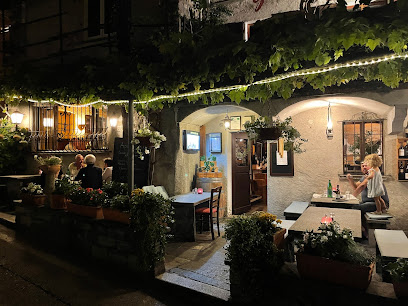
Ristorante Al Tulipano Bianco
Experience authentic Italian flavors at Ristorante Al Tulipano Bianco in Locarno – a culinary haven for tourists seeking delicious meals and cozy ambiance.
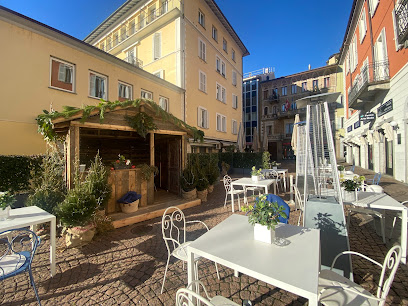
La Bottega del Vino
Discover Locarno's culinary treasure at La Bottega del Vino—where exquisite wines meet gourmet dining.
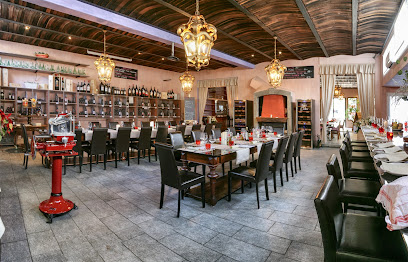
Ristorante Cittadella
Discover authentic Swiss and Italian flavors at Ristorante Cittadella in Locarno – where exquisite cuisine meets breathtaking views.
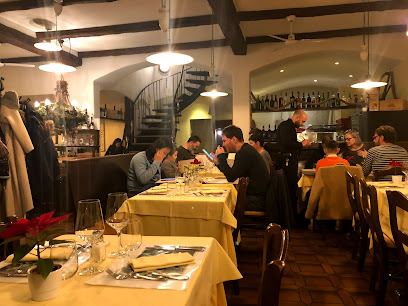
Markets, malls and hidden boutiques
MANOR Locarno
Experience the vibrant shopping scene at MANOR Locarno, where fashion, home goods, and unique finds await in a picturesque setting.
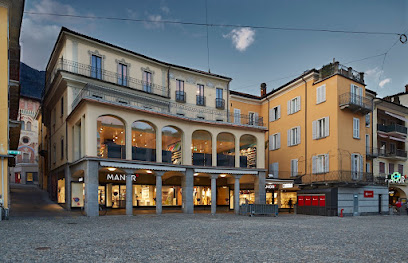
Ochsner Shoes
Discover the ultimate shopping destination for footwear and fashion in Locarno, where style meets quality at Ochsner Shoes.
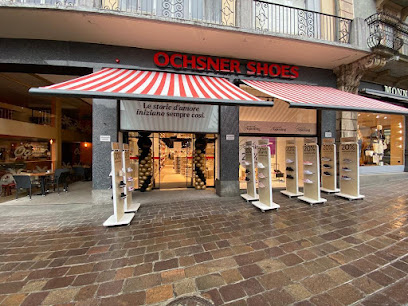
Boutique Dione Originale
Discover exquisite women's fashion and stylish footwear at Boutique Dione Originale in Locarno, the ultimate shopping experience for fashion lovers.
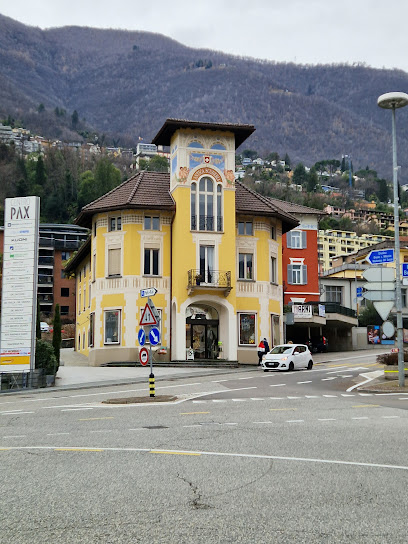
Kälin Moda Sagl
Explore Kälin Moda Sagl in Locarno for stylish men's fashion, quality craftsmanship, and a personalized shopping experience in a vibrant setting.
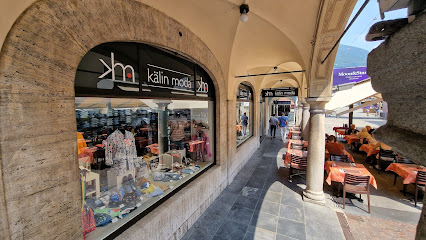
Light House Home & Life Philosophy
Discover exquisite bedding, stylish furniture, and unique women's clothing at Light House Home & Life Philosophy in Locarno.
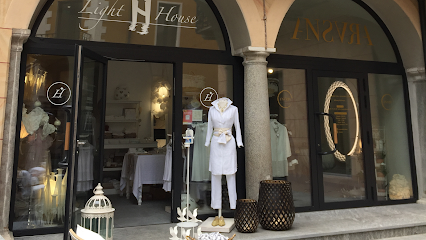
Boutique LUWI
Discover unique fashion at Boutique LUWI in Locarno, featuring exquisite clothing, handbags, and leather goods that showcase Swiss elegance.
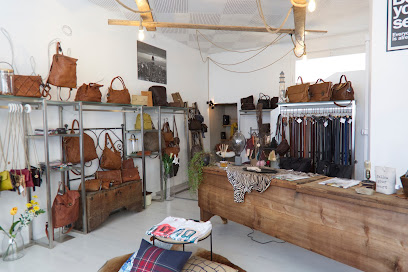
La Sosta da Giulia
Discover unique fashion at La Sosta da Giulia in Locarno's Piazza Grande, where quality meets style in a vibrant shopping experience.
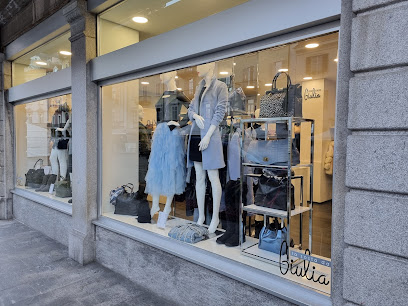
Ranabeti
Explore Ranabeti in Locarno, a unique craft store and beer haven showcasing local artistry and brews in the heart of Switzerland.

Gioia 3
Explore Gioia 3 in Locarno for unique gifts and stylish handbags, capturing the essence of Swiss elegance and artistry.
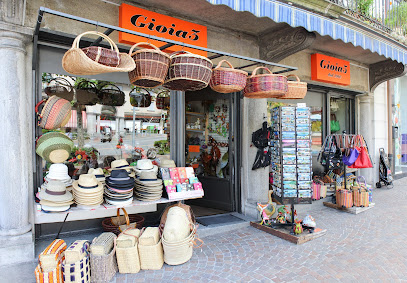
La Trama - Boutique
Explore La Trama in Locarno for unique women's and men's fashion, chic accessories, and stylish shoes in a cozy boutique atmosphere.
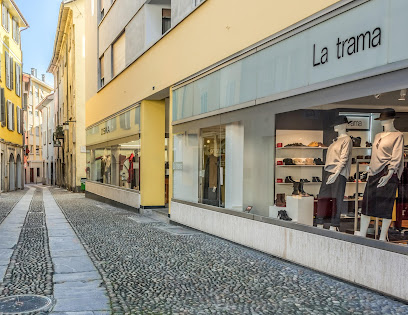
Bottega del Mondo
Explore Locarno's Bottega del Mondo, a unique gift shop showcasing local crafts and Swiss culture with a delightful selection of souvenirs.

Falconeri
Discover timeless elegance at Falconeri, a premier clothing shop in Locarno offering high-quality apparel for men and women in a chic setting.
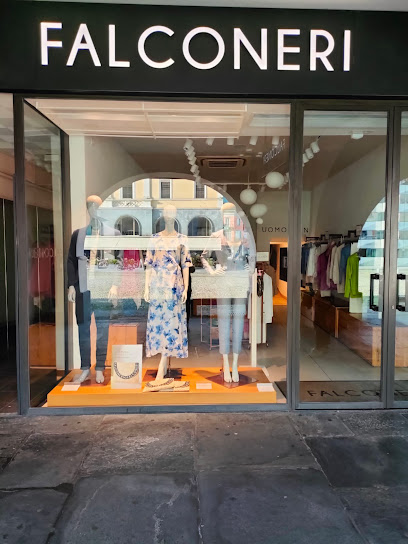
Kam For Sud Bazaar
Explore Kam For Sud Bazaar in Locarno for authentic Nepali crafts and clothing, celebrating the beauty of culture and artistry.
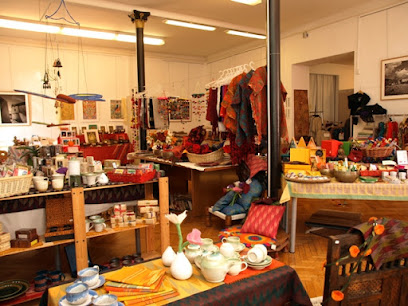
Risa
Discover Risa in Locarno: your destination for stylish clothing, premium leather goods, and unique fashion accessories in the heart of the Swiss Alps.
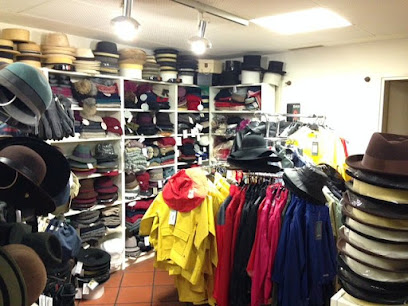
Isekai Shop
Explore Isekai Shop in Locarno for an unparalleled selection of comic books, manga, and collectibles, where storytelling comes to life.
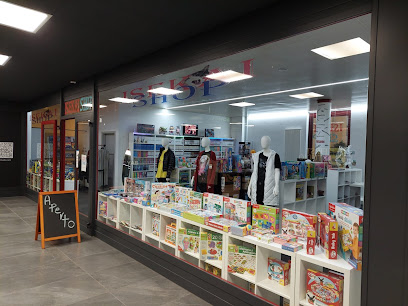
Essential bars & hidden hideouts
BLU Restaurant & Lounge
Discover a unique blend of Mediterranean and Japanese cuisine at BLU Restaurant & Lounge in Locarno, where every meal is a delightful experience.
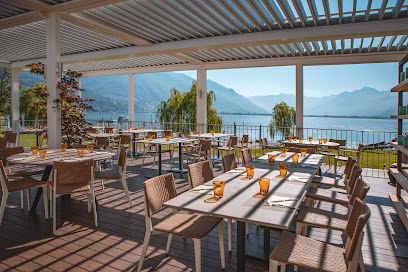
Pardo Bar
Experience the lively atmosphere and exceptional drinks at Pardo Bar, the heart of Locarno's vibrant social scene.
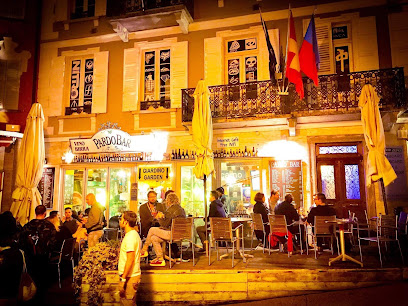
Bar Castello
Discover the lively ambiance of Bar Castello, a top bar in Locarno, Switzerland, where great drinks meet unforgettable experiences.
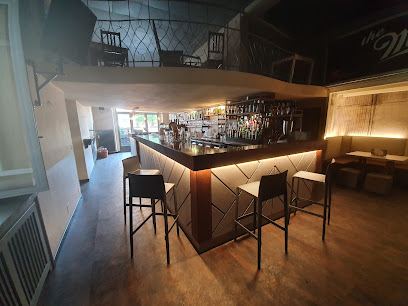
La Bottega del Vino
Experience authentic Italian cuisine and exquisite wines at La Bottega del Vino, Locarno's charming restaurant and wine bar.
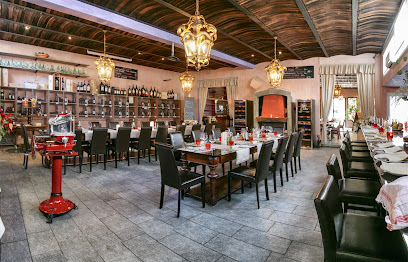
Bar Mono
Experience the vibrant nightlife of Locarno at Bar Mono, where great drinks and local culture blend seamlessly in a cozy atmosphere.
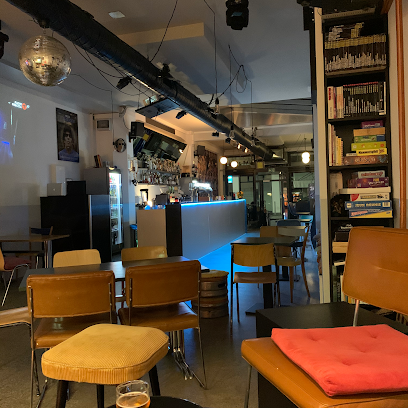
Isolino Ristorante Locarno
Experience authentic Italian cuisine at Isolino Ristorante, a charming eatery near Lake Maggiore in Locarno, perfect for all food lovers.
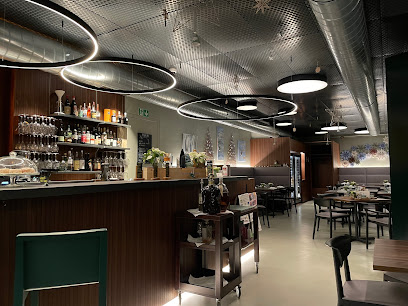
Bar Bazoo
Discover Bar Bazoo in Locarno – an affordable bar offering scrumptious sandwiches and a cozy atmosphere in the heart of Piazza Muraccio.
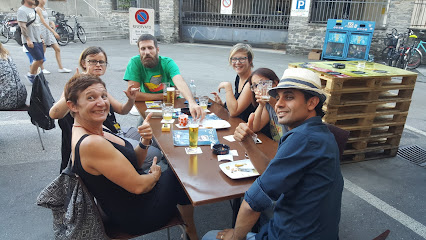
La Fontana Ristorante & Bar
Experience exquisite dining and breathtaking views at La Fontana Ristorante & Bar in Locarno, where local flavors meet international cuisine.
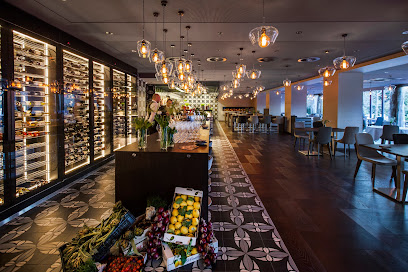
BarLume
Experience the vibrant atmosphere of BarLume in Locarno, where delicious food and drinks meet local culture in a cozy setting.
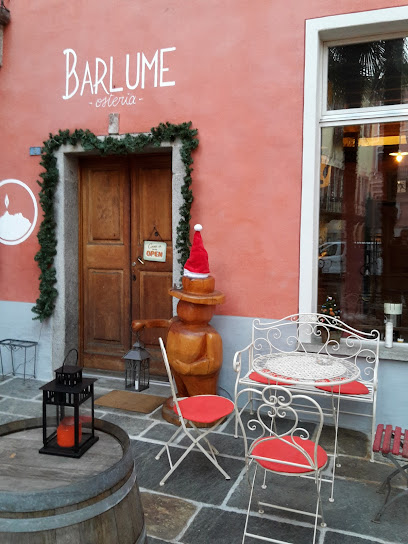
Bar Selz
Experience the vibrant atmosphere and delightful drinks at Bar Selz, a must-visit bar in Locarno, Switzerland.
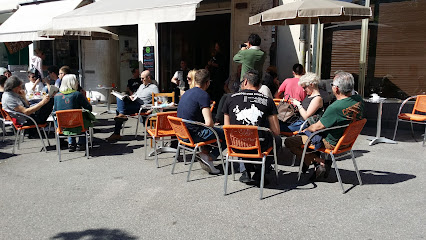
Bar Festival
Discover the vibrant nightlife at Bar Festival in Locarno, a lively bar known for its cocktails, live music, and welcoming atmosphere.
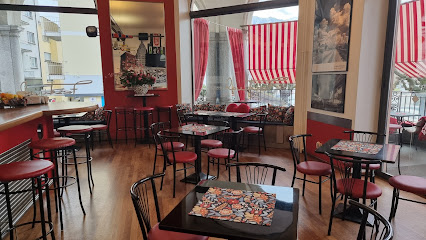
Bar Verzaschina
Experience the vibrant atmosphere and local flavors at Bar Verzaschina, a charming bar in the heart of Locarno, Switzerland.
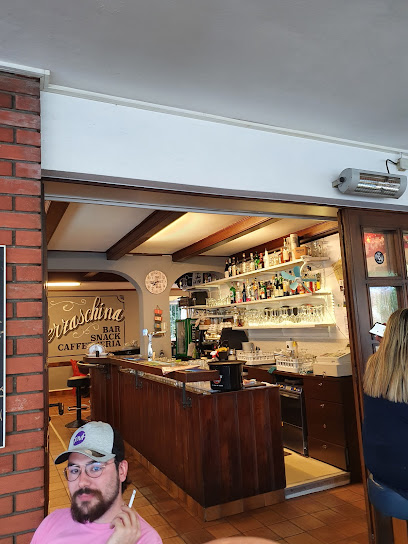
Barbacan
Discover the vibrant atmosphere of Barbacan, Locarno's favorite bar for drinks, socializing, and local culture.
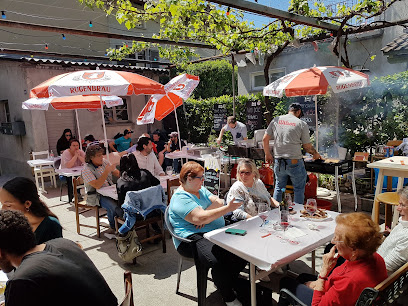
Gin8 La Gintoneria & Bar
Experience Locarno's vibrant nightlife at Gin8 La Gintoneria & Bar, where exquisite gin meets a cozy atmosphere and delicious snacks.
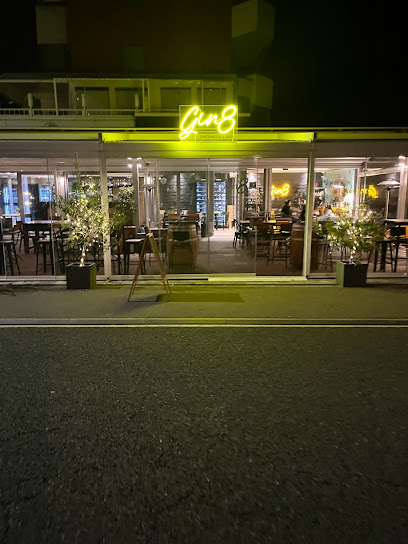
Local Phrases
-
- HelloCiao
[chow] - GoodbyeArrivederci
[ah-ree-veh-dehr-chee] - YesSì
[see] - NoNo
[noh] - Please/You're welcomePer favore/Prego
[pehr fah-voh-reh/preh-goh] - Thank youGrazie
[grah-tsee-eh] - Excuse me/SorryScusi/Mi dispiace
[skoo-zee/mee dees-pyah-cheh] - How are you?Come stai?
[koh-meh stah-ee] - Fine. And you?Bene. E tu?
[beh-neh. eh too] - Do you speak English?Parli inglese?
[pahr-lee een-gleh-zeh] - I don't understandNon capisco
[nohn kah-pee-skoh]
- HelloCiao
-
- I'd like to see the menu, pleaseVorrei vedere il menu, per favore
[vohr-reh-ee veh-deh-reh eel meh-noo, pehr fah-voh-reh] - I don't eat meatNon mangio carne
[nohn mahn-joh kahr-neh] - Cheers!Salute!
[sah-loo-teh] - I would like to pay, pleaseVorrei pagare, per favore
[vohr-reh-ee pah-gah-reh, pehr fah-voh-reh]
- I'd like to see the menu, pleaseVorrei vedere il menu, per favore
-
- Help!Aiuto!
[ah-yoo-toh] - Go away!Vai via!
[vy vee-ah] - Call the Police!Chiama la polizia!
[kyah-mah lah poh-lee-tsya] - Call a doctor!Chiama un medico!
[kyah-mah oon meh-dee-koh] - I'm lostMi sono perso
[mee soh-noh pehr-soh] - I'm illSto male
[stoh mah-leh]
- Help!Aiuto!
-
- I'd like to buy...Vorrei comprare...
[vohr-reh-ee kohm-prah-reh] - I'm just lookingSto solo guardando
[stoh soh-loh gwar-dahn-doh] - How much is it?Quanto costa?
[kwahn-toh koh-stah] - That's too expensiveÈ troppo caro
[eh troh-poh kah-roh] - Can you lower the price?Puoi abbassare il prezzo?
[pwah-ee ahb-bahs-sah-reh eel preht-soh]
- I'd like to buy...Vorrei comprare...
-
- What time is it?Che ora è?
[keh oh-rah eh] - It's one o'clockÈ l'una
[eh loo-nah] - Half past (10)Sono le dieci e mezza
[soh-noh leh dee-eh-chee eh meht-sah] - MorningMattina
[maht-tee-nah] - AfternoonPomeriggio
[poh-meh-ree-joh] - EveningSera
[seh-rah] - YesterdayIeri
[yeh-ree] - TodayOggi
[oh-jee] - TomorrowDomani
[doh-mah-nee] - 1Uno
[oo-noh] - 2Due
[doo-eh] - 3Tre
[treh] - 4Quattro
[kwah-troh] - 5Cinque
[cheen-kweh] - 6Sei
[seh-ee] - 7Sette
[seht-teh] - 8Otto
[oh-ttoh] - 9Nove
[noh-veh] - 10Dieci
[dee-eh-chee]
- What time is it?Che ora è?
-
- Where's a/the...?Dov'è...?
[doh-veh] - What's the address?Qual è l'indirizzo?
[kwahl eh leen-dee-ree-tsoh] - Can you show me (on the map)?Puoi mostrarmi (sulla mappa)?
[pwah-ee mohs-trahr-mee soo-lah mahp-pah] - When's the next (bus)?Quando passa il prossimo (autobus)?
[kwahn-doh pahs-sah eel prohs-see-moh ow-toh-boos] - A ticket (to ....)Un biglietto (per ....)
[oon beel-lyet-toh pehr]
- Where's a/the...?Dov'è...?
History of Locarno
-
Locarno's origins date back to the Neolithic period, with archaeological evidence revealing early human settlements in the area. The city later came under Roman influence, becoming a significant point along the important trade routes of the Roman Empire. Artifacts like coins, pottery, and the remains of Roman buildings testify to the region's integration into the ancient empire.
-
During the medieval period, Locarno flourished as a center of commerce and trade, largely due to its strategic position near important Alpine passes. The city came under the control of the Visconti family from Milan in the 14th century, which brought both stability and prosperity. The Visconti erected the Castello Visconteo, a fortification that still stands today as a testament to their influence.
-
The Protestant Reformation in the 16th century brought significant religious upheaval to Locarno. The city became a refuge for Protestant exiles from Italy, leading to conflict with the predominantly Catholic population. This strained coexistence was eventually resolved by the forced expulsion of the Protestant community in 1555, an event that marked a significant turning point in Locarno's religious landscape.
-
In the aftermath of World War I, Locarno gained international prominence with the signing of the Locarno Treaties in 1925. These agreements were aimed at ensuring peace in Western Europe by securing borders and fostering reconciliation between Germany and its neighbors. The treaties were signed at the Palazzo del Casinò, and their legacy is a key chapter in Locarno's 20th-century history.
-
Established in 1946, the Locarno Film Festival has grown into one of the most prestigious film festivals in the world. Held annually in August, the festival attracts filmmakers and cinephiles from around the globe. Its open-air screenings in the Piazza Grande create a unique cinematic experience, further solidifying Locarno's cultural significance on the international stage.
-
Today, Locarno is a vibrant city that blends its rich historical heritage with modern amenities. The picturesque lakeside promenade, charming old town, and numerous cultural events make it a popular destination for both tourists and locals. The city's commitment to preserving its historical sites while fostering contemporary culture ensures that Locarno remains a unique and captivating place to visit.
Locarno Essentials
-
Locarno is accessible via multiple modes of transportation. The closest major airport is Milan Malpensa Airport (MXP) in Italy, approximately 120 kilometers away. From there, you can take a direct train to Locarno, which takes about 2.5 hours. Alternatively, Zurich Airport (ZRH) is another option, with a train journey to Locarno taking roughly 3 hours. If traveling by car, Locarno is accessible via the A2 motorway from the north and the A13 from the east. Swiss Federal Railways (SBB) offers frequent train services from major Swiss cities to Locarno.
-
Locarno offers various transportation options for travelers. The town is well-connected by public transport, including buses and trains. The local bus network, operated by FART (Ferrovie Autolinee Regionali Ticinesi), covers most areas of the town and its surroundings. For a scenic experience, consider taking the Centovalli Railway, which connects Locarno to Domodossola in Italy. Taxis are readily available, and car rentals can be arranged at the train station or via major rental agencies. Many of Locarno's attractions are within walking distance, making it easy to explore on foot.
-
The official currency of Switzerland is the Swiss Franc (CHF). Credit and debit cards are widely accepted in hotels, restaurants, and shops. ATMs are plentiful throughout Locarno, and many accept international cards. For smaller purchases, especially in local markets or smaller establishments, it is advisable to carry some cash. Currency exchange services are available at banks and exchange offices.
-
Locarno is generally a safe destination for tourists, with low crime rates. However, as in any tourist destination, it is advisable to remain vigilant. Avoid leaving your belongings unattended and be cautious in crowded areas to prevent pickpocketing. There are no specific high-crime areas targeting tourists, but standard safety precautions should always be taken.
-
In case of emergency, dial 112 for immediate assistance. Locarno has a well-equipped hospital, the Ospedale Regionale di Locarno, for medical emergencies. Pharmacies are available throughout the town for minor health issues and over-the-counter medications. It is recommended to have travel insurance that covers medical emergencies. For police assistance, you can contact the local police station.
-
Fashion: Do dress smart-casual, especially when dining out or visiting cultural sites. Avoid overly casual attire like flip-flops and beachwear in restaurants. Religion: Do respect local customs and traditions. When visiting churches, dress modestly and avoid making loud noises. Public Transport: Do be respectful and give up your seat to elderly passengers. Don’t eat or drink on public transport. Greetings: Do greet people with a polite 'Grüezi' in Swiss German or 'Buongiorno' in Italian. A handshake is customary. Eating & Drinking: Do try local specialties like polenta and risotto. Don’t forget to tip, as it’s customary to round up the bill.
-
To experience Locarno like a local, visit the weekly market at Piazza Grande where you can buy fresh produce and local crafts. Engage with locals, who are often friendly and willing to share their culture. Don’t miss the Locarno Film Festival held every August, which attracts filmmakers and cinema enthusiasts from around the world. For a unique experience, take a boat trip on Lake Maggiore to explore the nearby Brissago Islands.
Trending Landmark in Locarno
-
Piazza Grande
-
Madonna del Sasso
-
Lido Locarno - CBR Centro Balneare Regionale
-
Falconeria Locarno
-
Locarno–Madonna del Sasso funicular
-
Parco giochi al Burbaglio
-
Parco delle Camelie
-
Cardada Panoramic View Point
-
Visconteo Castle
-
Lungolago Locarno/Muralto
-
Bolle di Magadino
-
Lungolago di Locarno
-
Ghisla Art Collection
-
Museo Casa Rusca
-
Infodesk Locarno / Ascona-Locarno Tourism
Nearby Cities to Locarno
-
Things To Do in Ascona
-
Things To Do in Lugano
-
Things To Do in Grindelwald
-
Things To Do in Murren
-
Things To Do in Zermatt
-
Things To Do in Milan
-
Things To Do in Bergamo
-
Things To Do in St. Moritz
-
Things To Do in Interlaken
-
Things To Do in Arosa
-
Things To Do in Lucerne
-
Things To Do in Davos
-
Things To Do in Thun
-
Things To Do in Balzers
-
Things To Do in Triesenberg












